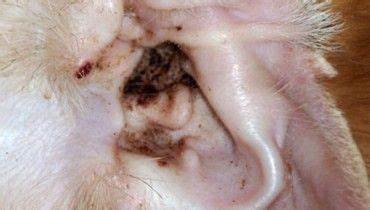Ear infections in dogs are a common and often frustrating issue that can cause discomfort for your furry friend. Recognizing the signs early and understanding the causes are crucial in preventing these infections from leading to significant health problems. This guide will walk you through the types of ear infections, their causes, symptoms, and treatment options, empowering you to take proactive steps to keep your dog’s ears healthy.
Types of Ear Infections in Dogs
Three main types of ear infections can affect dogs, each with its specific characteristics:

- Otitis Externa (Outer Ear Infection)
- Description:
This is the most common type of ear infection, affecting the outer part of the ear canal.
- Causes:
Bacteria, yeast, allergies, or foreign objects (such as grass or dirt) can irritate and infect the outer ear canal.
- Symptoms include redness,
swelling, discharge (often yellow, brown, or black), and excessive ear scratching or shaking. The dog may also have a strong odor coming from the ear.
- Otitis Media (Middle Ear Infection)
- Description:
This infection affects the middle ear and is much more serious than an outer ear infection.
- Causes:
Left untreated, otitis externa can progress into otitis media, often due to a buildup of bacteria or yeast in the ear canal.
- Symptoms:
Pain, inflammation, balance issues (such as head tilting), and more severe discharge. Dogs may show signs of hearing loss or change their behavior due to pain.
- Otitis Interna (Inner Ear Infection)
- Description:
This is the most serious ear infection, affecting the inner ear.
- Causes:
Typically, the result of untreated otitis media, otitis interna, can also be caused by trauma, a foreign object in the ear, or underlying health problems like hypothyroidism.
- Symptoms include loss of balance.
(the dog may walk in circles), head tilting, lack of coordination, severe pain, and possibly facial nerve paralysis. This infection can also cause hearing loss and requires immediate veterinary attention.
Causes of Ear Infections in Dogs
Various causes can lead to ear infections in dogs. Some of the most common include:
- Bacterial Infections:
Bacteria thrive in moist environments, making the ear canal ideal for bacterial growth, especially when dogs swim frequently or have wet ears for extended periods.
- Yeast Infections:
Yeast (especially Malassezia) is another common culprit in ear infections. Dogs with allergies, excessive ear moisture, or a compromised immune system are more susceptible to yeast infections.
- Allergies:
Food allergies, environmental allergies (like pollen or dust mites), and flea allergies can cause inflammation in the ear canal, making it more prone to infections.
- Foreign Bodies:
Objects like grass seeds, dirt, or even small toys can get stuck in a dog’s ear and cause irritation, which can lead to an infection if not removed.
- Ear Mites:
These microscopic parasites can cause itching, inflammation, and ear infections. Ear mites are more common in puppies and dogs around other infected pets.
- Underlying Health Conditions:
Hypothyroidism, diabetes, and immune system disorders can make dogs more prone to ear infections.
Symptoms of Ear Infections in Dogs
The signs of an ear infection can vary depending on the severity and type of infection, but common symptoms include:

- Head shaking or tilting
- Scratching or pawing at the ear
- Discharge from the ear (may be yellow, brown, or black)
- Odor coming from the ear
- Pain when touching the ear or head
- Redness or swelling inside the ear canal
- Hearing loss or sensitivity to sound
- Balance issues or walking in circles (common in more severe infections)
- Behavioral changes such as irritability or avoiding petting around the head
If you notice any of these symptoms, it’s essential to consult a veterinarian as soon as possible. Remember, your vet is there to guide you and provide the best care for your dog, so don’t hesitate to seek their advice at the first sign of an ear infection.
Treatment for Ear Infections in Dogs
Treatment for ear infections in dogs will depend on the type and severity of the infection. It’s essential to follow the veterinarian’s guidance for effective treatment. Here are the general treatment options for each type of infection:
- Otitis Externa (Outer Ear Infection)
- Cleaning the Ear:
The first step in treating an outer ear infection is gently cleaning the ear to remove excess wax, debris, or discharge. Your vet will recommend an ear cleaner, and it is essential to follow their instructions.
- Antibiotics or Antifungals:
If the infection is caused by bacteria or yeast, your vet may prescribe ear drops or oral medications to combat the infection.
- Anti-inflammatory Medications:
Your vet may recommend corticosteroid ear drops or oral anti-inflammatory drugs to reduce pain and inflammation.
- Otitis Media (Middle Ear Infection)
- Antibiotics:
For bacterial infections, oral antibiotics and topical ear drops are typically prescribed. The treatment may need to be continued for several weeks to completely clear the infection.
- Ear Cleaning and Medications:
If the infection has spread and caused significant buildup, your vet may clean the middle ear under anesthesia in addition to antibiotics or antifungals.
- Pain Management:
Pain relievers may be prescribed to manage discomfort.
- Otitis Interna (Inner Ear Infection)
- Aggressive Treatment:
This severe infection often requires systemic antibiotics or antifungal medications. Hospitalization may be necessary for dogs with significant balance issues or other complications.
- Surgical Intervention:
In rare cases, if the infection is persistent and severely affects the ear structures, surgery might be required to remove the infected tissue or drain the ear.
Preventing Ear Infections in Dogs
While some ear infections are unavoidable, you can significantly reduce the likelihood of your dog developing them and dramatically improve its ear health.
- Regular Ear Cleaning:
If your dog is prone to ear infections, clean their ears regularly with a vet-approved ear cleaner to keep the ear canal free of debris and excess moisture.
- Keep Ears Dry:
Dry your dog’s ears thoroughly after swimming or bathing to prevent moisture buildup. Gently use a cotton ball or a soft towel to absorb water from the ear.
- Control Allergies:
If your dog has allergies, work with your vet to manage them and reduce the risk of ear inflammation.
- Check for Foreign Bodies:
If your dog spends time outdoors, check their ears frequently for signs of grass, dirt, or other foreign objects.
- Flea Control:
Keeping your dog on a flea prevention program will help reduce the risk of ear infections caused by flea allergies.
Conclusion
Ear infections are a common health issue for dogs, but they can be treated effectively with proper care. If you notice any signs of ear infection in your dog, it’s essential to consult with a veterinarian to determine the cause and appropriate treatment. Regular ear cleaning, controlling allergies, and keeping your dog’s ears dry are key steps in preventing infections from recurring. You can help ensure your dog stays comfortable and healthy by staying vigilant and proactive.




